Med News 02/2020
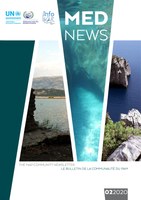
EDITORIAL
By Gaetano Leone, Coordinator, UNEP/MAP—Barcelona Convention Secretariat
The last time I wrote for MED-NEWS, our MAP system newsletter, COVID-19 was still rising on the horizon as an unprecedented global threat. We are now beginning to come to terms with the hefty toll that the pandemic has taken through loss of life, human suffering and massive economic disruptions in our region.
Mediterranean countries have taken measures to flatten the curve of infections, including lockdowns for several weeks and, in some cases, months. In Athens, the UNEP/MAP Coordinating Unit has been implementing alternative working modalities since mid-March, with staff working from home to ensure the continuation of activities. Our Regional Activity Centres, depending on the situation in their host countries, also put in place similar arrangements.
Although this was uncharted professional territory for our people and despite crippling travel restrictions, we managed to conduct our business in a surprisingly efficient manner. Important MAP governing body meetings, including the Bureau meeting—the first since COP 21 (Naples, 2-5 December 2019)—and the meeting of the steering committee of the Mediterranean Commission on Sustainable Development went well and saw rich discussions and renewed expressions of unfaltering support to the UNEP-MAP Barcelona Convention System.
In our commitment to serving the Contracting Parties under the novel and complex situation created by the coronavirus pandemic, we at the UNEP/MAP—Barcelona Convention Secretariat took it upon ourselves to draw the outlines of a blueprint for a coordinated and consistent systematic response to the emerging challenges created by COVID-19. The blueprint covers the implications of the medical and humanitarian emergency and provides pointers towards a UNEP/MAP contribution to transformational change for nature and people, and to building back better in the recovery from the pandemic.
In many respects, the forward-looking Naples Ministerial Declaration adopted at COP 21 includes fundamental aspects to be addressed in planning a green recovery: climate change, marine litter, biodiversity conservation and a sustainable blue economy. The State of the Environment and Development (SoED) report, which we plan to launch soon jointly with our Regional Activity Centre Plan Bleu and with support from UNEP, also provides insights into the root causes of the environmental degradation observed in our region’s marine and coastal environment. Evidence of the interactions between environment and development in the Mediterranean will be key to learning from the mistakes of the past and to building back better.
The implementation of the priority actions identified in our COVID-19 response blueprint will be based on partnerships and coordination with the Contracting Parties, the Mediterranean Commission for Sustainable Development, sister United Nations agencies and Environmental Multilateral Agreements and with our MAP Partners, including representatives of the vibrant Mediterranean civil society.
Meanwhile, the implementation of Programme of Work of the 2020-2021 biennium went underway in earnest with the activation of important process, including the implementation of the roadmap for “a proposal for the possible designation of the Med SOx ECA”. We have also initiated important work on updating and developing new legally binding measures under three Regional Plans on wastewater management, sludge management and marine litter management in line with Article 15 of the LBS Protocol of the Barcelona Convention.
One of the highlights of this biennium will be the inception of the USD 43 million “Mediterranean Sea Programme (MedProgramme): Enhancing Environmental Security”, which will take place on 20-22 July 2020 with the participation of the beneficiary countries—Albania, Algeria, Bosnia and Herzegovina, Egypt, Libya, Lebanon, Morocco, Montenegro, Tunisia and Turkey—and UNEP/MAP partners in its implementation. The MedProgramme, for which we are the main executing agency, will constitute a significant UNEP/MAP contribution in the framework of our strategic partnership with the Global Environment Facility (GEF).
Following its launch on 10 March 2020, the new IMAP-MPA project funded by the European Union (EU) has seen the adoption of key working documents and action plans relating to its two-pronged aim: strengthening national capacities in integrated monitoring of the Mediterranean Sea and Coast, and enhancing the management of marine protected areas in the region.
We are now in the process of finalizing two additional EU-funded project documents, namely the “EcAp Med III” and “Marine Litter MED II”. The EcAp MED III project will support the implementation of the Integrated Monitoring and Assessment Programme (IMAP) and generate quality assured data that will feed into the next edition of the Mediterranean Quality Status Report (MED QSR), which will be delivered in 2023, in line with relevant decisions adopted by the Contracting Parties at COP 20 and COP 21.
On a different but closely related track, the Marine Litter MED II project will further strengthen the implementation of Regional Plans on Marine Litter Management in the Mediterranean. It will support monitoring and assessment, as well as actions in the field in southern Mediterranean countries with the aim of reducing and preventing marine litter in pilot areas.
In relation to marine litter, we will assess the extent to which the widespread use of disposable personal protective equipment (PPE) and anti-COVID-19 chemical disinfectants are resulting in additional heaps of litter and in potentially harmful agents leaking into the marine and coastal environment. Our intention is to rapidly develop responses to this growing challenge that compounds the already serious impact of marine litter in the Mediterranean.
We are determined to support our region by mobilizing the entire arsenal of expertise and knowledge that we have at our disposal within the UNEP/MAP—Barcelona Convention System. There is no silver lining to be found in the COVID-19 pandemic, but we believe that our region must seize a historic opportunity to recover in a smart, evidence-based fashion. Important elements of our thinking on this important challenge are captured in our recent calls for a Green Renaissance in Mare Nostrum, which you can find in this article that UNEP published on the International Day for Biological Diversity and in my message on behalf of the UNEP/ MAP on World Oceans Day.
You can follow us on our twitter (@UNEPMAPNews) and join the conversation by using the hashtag #BarcelonaConvention.
17 June 2020
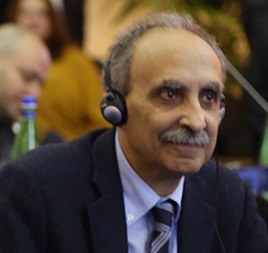
Interview with Mr. Giuseppe Italiano - General Director for Sea and Coasts - Italian Ministry of Environment Land and Sea (IMELS)
Under Bilateral Agreement between UNEP/MAP and IMELS
Q.: Italy is one of the Contracting Parties to the Barcelona Convention since its ratification: which is the main goal of the Agreement signed between IMELS and UNEP/MAP?
One of the core businesses of the Italian environmental policy, mainly in ...
The regional approach, that the Italian Ministry of Environment (IMELS), and the General Directorate for Sea and Coasts I have the honor to represent, has always supported in all relevant fora, is the most adequate mean to overcome threats that for their nature cannot be managed individually within the National borders.
This clear vision, together with the objective to strengthen synergies for the implementation of National policies at a wider scale by guaranteeing at the same time the effective application of the ecosystem approach, has strongly inspired the Cooperation Agreement between IMELS and UNEP, whose results are tangible proof of the success of the said approach.
The Cooperation Agreement between the Italian Ministry for the Environment and the United Nations Program for the Environment was born in 2016 with the clear objective to boost the collaboration of both the signatory Parties on key themes of common interest for the protection of the Mediterranean and its coastal Regions.
Q.: Which are the main outcomes of this agreement and how they can make the difference in Mediterranean Sea protection?
The Agreement, meant to contribute to the implementation of priority actions as the management of Specially Protected Areas of Mediterranean Interest (SPAMI), the prevention and reduction of marine litter, the implementation of Coastal Areas management programs (CAMP), the promotion of the Integrated Coastal Zone Management and Marine Spatial Planning (MSP) as well as other governance tools for the Blue Growth, revealed itself an exemplary model of concrete cooperation between a Contracting party of the Barcelona Convention and its Secretariat.
The design of the Bilateral Agreement itself, intended to support a number of activities of a cross-cutting nature and deliver multi-dimensional outcomes, such as ecosystem-based MSP or marine litter management in MPAs, has definitely promoted coordination and integration, meaning integration of responses, by addressing different sectors in a holistic manner, and institutional integration through a coordinated work between the UNEP/MAP System and IMELS.
Q.: What is from an institutional/governmental point of view the added value in terms of coordination and integration of activities of this cooperation mechanism?
The success of the Agreement has been guaranteed by mainstreaming its activities into the programmatic framework of UNEP/MAP, going far beyond the scope of an ad-hoc project. In 2018-2019, it supported indeed 24 activities of the UNEP/MAP Programme of Work, under 5 Themes of the Mid-Term Strategy (MTS), involving all MAP Components, and its deliverables have been instrumental in achieving important results to MTS implementation at all sub-regional, national and regional levels. That, without forgetting the needed synergy with the global processes and instruments including the UN 2030 Agenda for Sustainable Development and relevant SDGs, the UNEA Resolutions, especially those related to marine litter and microplastics and SCP patterns and circular economy, as well as the CBD and Aichi Targets.
Further, the focus on the sub-regional Adriatic area, with some outcomes being tailored to the Adriatic needs and specificities, has not jeopardized the overall objective to benefit the whole Region because the best practices, tools and methodologies applied in those contexts can be surely expanded and/or replicated in other areas or at regional level.
Q.: Based on the overall results and impacts achieved does Italy consider this framework as a model to be used for similar cooperation mechanisms with other Contracting Parties within the Barcelona Convention system?
The vision of the Agreement, together with the methodology and strategic approach applied by all actors involved, indeed, represent a model to be exported to any future bilateral relations with other Mediterranean Countries and Italy commits itself to help the Mediterranean Community, mainly our developing neighbor Countries, to take advantage of instruments like that for the benefit of our Mare Nostrum.
Finally, the success of this Cooperation, which echoed in the whole Mediterranean Community, cannot be isolated and limited to its duration. It represents a solid basis on which Italy is keen to work in view of future cooperation agreements, including with UNEP/MAP Secretariat, benefitting the Mediterranean and advancing in the fight against its emerging threats also in consideration of the effects of the COVID-19 outbreak on our Region.
Giuseppe Italiano
General Director for Sea and Coasts
MAP Focal Point
Italian Ministry of Environment (IMELS)

Memorandum of Understanding between the Italian Ministry of Environment, Land and Sea Protection (IMELS) and UN Environment Programme (UNEP)
Under the Bilateral Agreement between UNEP/MAP and IMELS
The Memorandum of Understanding between the Italian Ministry of Environment, Land and Sea Protection (IMELS) and UN Environment Programme (UNEP) was signed in September 2016 to provide a framework of cooperation and understanding and to facilitate ...
The Memorandum of Understanding between the Italian Ministry of Environment, Land and Sea Protection (IMELS) and UN Environment Programme (UNEP) was signed in September 2016 to provide a framework of cooperation and understanding and to facilitate collaboration towards shared goals and objectives.
This Bilateral Cooperation Agreement has effectively addressed key common priorities of IMELS and UNEP/ Mediterranean Action Plan (MAP), with a particular focus on biodiversity conservation and protected areas management, marine litter prevention and reduction, establishment of Coastal Areas Management Programme network and promotion of Integrated Coastal Zone Management, Marine Spatial Planning and other relevant governance tools for Blue Growth.
The design of the Bilateral Agreement’s workplans, supporting a number of activities of a cross-cutting nature, and the delivery of multi-dimensional outcomes, such as ecosystem-based MSP or marine litter management in MPAs, has further promoted coordination and integration, which are at the core of the Regional Seas Conventions scope and mandate. This covers both integration of responses, by addressing different sectors in a holistic manner, but also institutional integration through a coordinated work between different UNEP/MAP Components for common activities under the overall guidance of the Secretariat.
During the Agreement’s implementation period, a number of activities were executed by the different MAP Components under the coordination of the Secretariat and the guidance provided by the Steering Committee, using an important financial support provided by the Italian government. The Agreement implementation led to the delivery of a number of tangible outcomes with a positive impact on the Mediterranean region, including reports, guidelines and analyses, capacity building activities, trainings and tools, regional and sub- regional meetings, pilot activities, twinning agreements between marine protected areas etc.
The importance of acting and achieving concrete results on the ground at sub-regional level has been continuously acknowledged by different UNEP/MAP bodies. In this respect, focus has been placed on the Adriatic area with some outcomes being tailored to the Adriatic needs and specificities. Sub-regional activities have been implemented in a manner to ensure significant benefits to the whole region, for example by developing and testing best practices, tools and methodologies that can be then expanded/ replicated in other areas or at regional level.
On the other hand, efforts have been made to ensure linkages of the activities with key global processes and instruments, including among the others the UN 2030 Agenda for Sustainable Development and its relevant SDGs by contributing to effective management of protected areas in the Mediterranean.
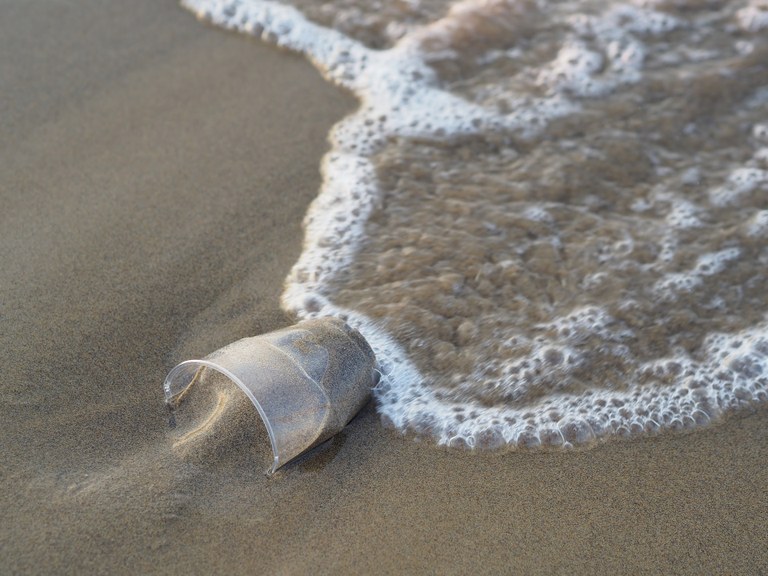
Addressing plastic pollution through public procurement – New guidelines produced by SCP/RAC
Under the Bilateral Agreement between UNEP/MAP and IMELS
Public procurement affects a considerable share of world trade, amounting on average 10 to 25% of a country’s Gross Domestic Product (GDP), therefore public procurement plays a key role in achieving more sustainable production and consumption ...
Public procurement affects a considerable share of world trade, amounting on average 10 to 25% of a country’s Gross Domestic Product (GDP), therefore public procurement plays a key role in achieving more sustainable production and consumption patterns. Though its pulling effect, public procurement can foster changes in the supply chain with a positive effect on the rest of the market.
Although public administrations consume plastic materials in many ways, some high-intense use areas were identified as well as which criteria could be applied in procurement processes. These areas correspond to:
- single-use plastics on the food & beverage sector, which from a public procurement perspective relate to purchases and contracts for the provision of food services in public buildings (schools, hospitals, universities…); catering services for meetings, conferences and events; and vending machines services.
- packaging in general applicable to any supplies, works and services carried out by public authorities (e.g. packaging of cleaning products).
The guidelines developed with support through the Cooperation Agreement target policy-makers in the Contracting Parties to the Barcelona Convention and provide them with a step-by-step approach for developing the appropriate framework to address the reduction of single-use plastics through procurement in the public sector.
The guidelines that have been elaborated following a review of case studies and consultations provide concrete examples and guidance for applying plastics-related criteria in procurement.
UNEP/MAP and its SCP/RAC will promote the implementation of the guidelines in the region. An initial and promising pilot took place in Montenegro, with the involvement of the Ministry of Sustainable Development and Tourism (MORiT), which proved the feasibility to implement them with great enthusiasm from public authorities.
You can download the guidelines here: English / Albanian / Bosnian-Montenegrin.
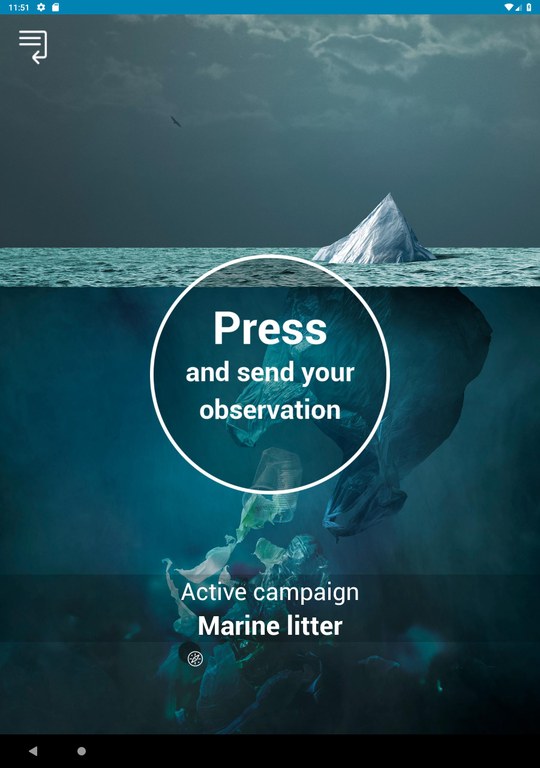
Enhancing marine litter management – SEAWatcher App
Under the Bilateral Agreement between UNEP/MAP and IMELS
Enhancing marine litter management – SEAWatcher App
In the framework of the bilateral agreement INFO/RAC has developed a web and mobile application for the collection of geographic data on marine litter called SEAWatcher.
The App aims at ...
Enhancing marine litter management – SEAWatcher App
In the framework of the bilateral agreement INFO/RAC has developed a web and mobile application for the collection of geographic data on marine litter called SEAWatcher.
The App aims at enhancing marine litter management providing a tool that is easy and readily available for the reporting of beach, floating or seafloor litter and it is based on the main principles of participatory science (citizen science), including the aspect of usage awareness which has been fully taken into account in the design and practical implementation of the App in order to make the use of the tool as user friendly as possible. SEAWatcher has a simple and intuitive interface, which makes the reporting as easy and fast as possible.
A basic reporting level requires only the coordinates of a georeferenced point (generated by GPS of the device), image of the object and a possible user note. This basic report layer includes a form that can be displayed on a single screen on any smartphone, avoiding the need to scroll the APP page looking for additional fields.
The implementation of the bilateral agreement has made it possible to create a flexible and open-source instrument that will allow to incorporate in the future additional topics of interest to the Barcelona Convention, in particular for species monitoring as plants and big animals.. Multiples benefits will be reached by the usage of SEAWatcher such as to enforce the visibility of UNEP/MAP and the message of “Communication as One” and to even more interlink the activities in the Barcelona Convention framework through the involvement and participation of citizens and stakeholders.
SEAWatcher is available both for IOS and Android operating systems.
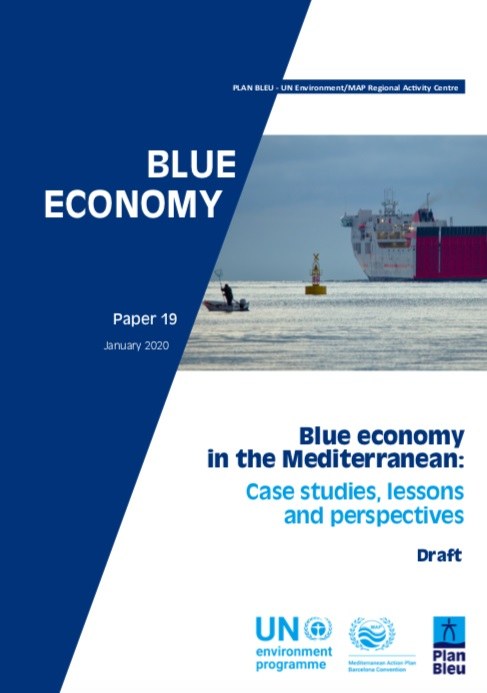
Blue economy in the Mediterranean: Case studies, lessons and perspectives
Under the Bilateral Agreement between UNEP/MAP and IMELS
The blue economy integrates a diverse range of economic activities from coastal and marine tourism to maritime transport, fisheries and aquaculture, and offshore renewable energy. Its potential contribution to sustainable job creation, food ...
The blue economy integrates a diverse range of economic activities from coastal and marine tourism to maritime transport, fisheries and aquaculture, and offshore renewable energy. Its potential contribution to sustainable job creation, food security, clean energy supply, circular economy and sustainable mobility in respect of the protection of the marine and coastal environment is huge. The UNEP/MAP Barcelona Convention Secretariat, through its Plan Bleu / Regional Activity Center, carried out an identification and analysis of « case studies » with the ultimate aim of providing a Mediterranean perspective to the main blue economy issues and challenges and developing recommendations for a transition towards a Mediterranean blue economy in line with SDG 14.
The objective of this report is to assess and highlight the current weight and various opportunities provided by the blue economy in the Mediterranean in coherence with the environmental legislation and in support of sustainable development and to showcase a range of concrete examples and good practices of how blue economy works in the region. More specifically, the report aims:
· to set out the current overall policy and socio-economic picture for the Blue Economy as well as future perspectives in the Mediterranean;
· to illustrate the opportunities offered by the Blue Economy with a limited number of case studies drawn from various geographic areas and sectors;
· to establish proposed strategic directions for the future development of Blue Economy in the Mediterranean region.
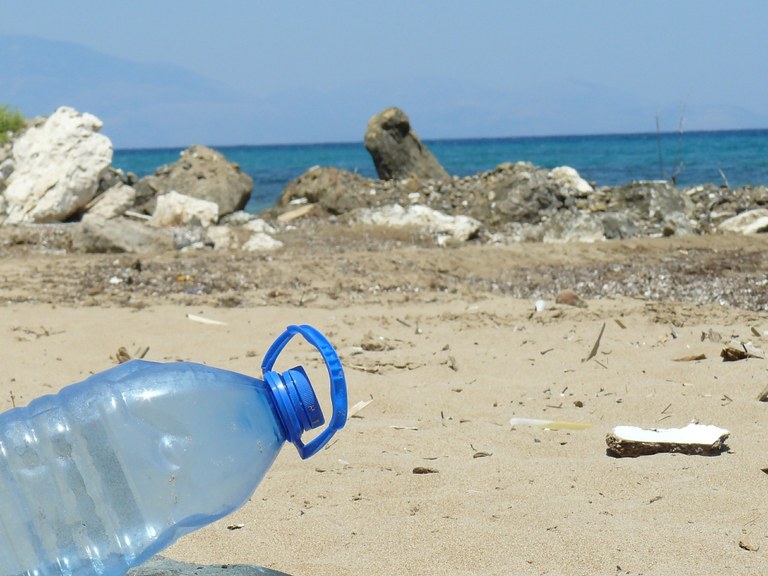
Operational Guidelines on the Provision of Reception Facilities in Ports and the Delivery of Ship-Generated Wastes in the Mediterranean
Under the Bilateral Agreement between UNEP/MAP and IMELS
This activity was part of REMPEC efforts aimed at contributing to the implementation of the Regional Plan on“Marine Litter Management in the Mediterranean”, with a specific focus on improving the management of marine litter from sea-based sources in ...
This activity was part of REMPEC efforts aimed at contributing to the implementation of the Regional Plan on“Marine Litter Management in the Mediterranean”, with a specific focus on improving the management of marine litter from sea-based sources in ports and marinas in the Adriatic Sea. Those generated by ships were improved of putting into effect incentives, such as the No-Special-Fee system for the use of port reception facility (PRF), for the waste to be discharged at port, rather than at sea, as well as exploring ways and means for marinas to ensure adequate provision of PRF and efficient delivery of waste.
Having carried out 6 pilots in major ports and marinas of the Adriatic area as well as 4 national meetings (Albania, Bosnia and Herzegovina, Montenegro and Slovenia), these efforts culminated in the organisation by REMPEC of a sub-regional meeting on the better management of marine litter from sea-based sources in ports and marinas in the Adriatic (Sliema, Malta, 29-30 January 2020), involving all the countries bordering the Adriatic area (Albania, Bosnia and Herzegovina, Croatia, Italy, Montenegro and Slovenia).
The Cooperation Agreement aimed at ensuring the review of the Operational Guidelines on the provision of Reception Facilities in Ports and the Delivery of Ship-Generated Wastes in the Mediterranean which were developed within the framework of the EU-funded "Marine Litter-MED” Project and adopted by COP21 (Naples, Italy, 2-5 December 2019), by the Adriatic countries, i.e. through dedicated sub-regional sessions organised on the margins of regional meetings, and the integration of their inputs, as well as the translation of the Operational Guidelines into national languages of the Adriatic countries.

Integration is the key: Common Regional Framework for Integrated Coastal Zone Management
Under the Bilateral Agreement between UNEP/MAP and IMELS
Integration is the key: Common Regional Framework for Integrated Coastal Zone Management
COP21 adopted the Common Regional Framework (CRF) for Integrated Coastal Zone Management (ICZM) as a strategic instrument capable to facilitate the ...
Integration is the key: Common Regional Framework for Integrated Coastal Zone Management
COP21 adopted the Common Regional Framework (CRF) for Integrated Coastal Zone Management (ICZM) as a strategic instrument capable to facilitate the implementation of the ICZM Protocol. The CRF, that was prepared with support through the Bilateral Cooperation Agreement, provides strategic orientations on how the ICZM Protocol is to be jointly implemented by the Contracting Parties (CPs) using coordinated and harmonized approaches. Namely, it gives orientations for the implementation of ICZM at different geographical scales and administrative levels (from the whole Mediterranean through sub-regional to national/local levels) and details some of the tools and instruments needed for that, such as environmental assessments; monitoring; coordination of planning processes on land and sea; governance mechanisms; land policy, economic and fiscal instruments; training, communication and information activities – all this in a context of international cooperation among CPs with the support of UN Environment/MAP and its Components.
The added value of the CRF is in:
- introducing marine spatial planning (MSP) as a part of the implementation of the ICZM Protocol, as implied in its Art. 3 delineating the geographical scope of the Protocol and defining the coastal zone that includes both the land and the sea;
- clarifying the context in which climate change issues can be effectively addressed with the support of the Barcelona Convention (BC) system i.e. by including adaptation measures into ICZM and MSP plans and strategies;
- screening the existing instruments, provisions and measures (adopted within the BC system but also some of the most relevant world-wide instruments) and providing methodological guidance for their combined use to solve various environmental issues, to reach Good Environmental Status (GES) and ensure sustainability;
- proposing a new Action Plan for the implementation of the ICZM Protocol in 2020-2027.
Why integration?
The adoption of the CRF by the COP 21 will not only facilitate the implementation of the ICZM Protocol and strengthen regional and sub-regional cooperation but it is also meant to enhance synergy and coordination of the entire MAP – Barcelona Convention system and its strategic and policy instruments, which is at the core of the ICZM Protocol.
One of the basic principles of ICZM is the ecosystem-based management to ensure sustainable development and integrity of the coastal zone, its ecosystems and related services and landscapes. The essence of the ecosystem-based management approach is to address the coastal zone as a continuum made of land and sea space, and dealing with the processes that occur in coastal and marine ecosystems and have influence on them in an integrated manner. This approach aims at ensuring sustainable use of natural resources and quality of life of coastal populations, with the focus on the ability to understand and address cumulative risks and effects on the natural world arising from human activities.
ICZM has evolved as the most appropriate approach to manage potential conflicts among various sectoral policies (conflicts over space, resources, infrastructures…), as well as between maritime and terrestrial policies by ensuring coherent governance schemes for planning and management on either land or sea parts of the coastal zone. It maximizes synergies and increases coordinated implementation of sectoral policies with a view to ensuring the integrity of ecosystems, as well as adequately addressing land-sea interactions (LSI) and ensuring the compatibility of land and sea uses by implementing MSP and linking it with ICZM.
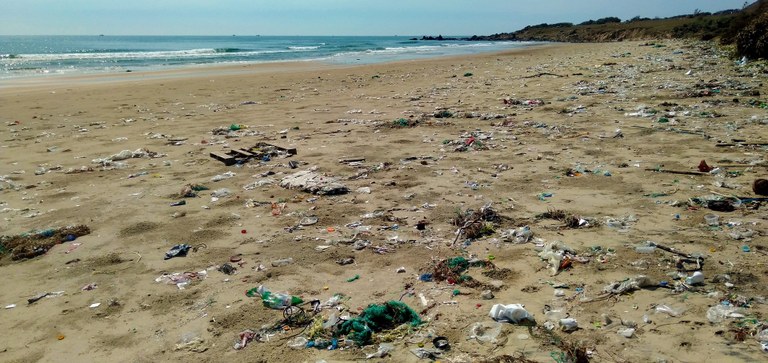
Priority areas of intervention to curb marine litter from food and beverage plastic packaging in Albania, Bosnia and Herzegovina and Montenegro.
Under the Bilateral Agreement between UNEP/MAP and IMELS
The Regional Activity Centre for Sustainable Consumption and Production (SCP/RAC) has published the policy brief “Priority areas of intervention to curb marine litter from food and beverage plastic packaging in Albania, Bosnia and Herzegovina and ...
The Regional Activity Centre for Sustainable Consumption and Production (SCP/RAC) has published the policy brief “Priority areas of intervention to curb marine litter from food and beverage plastic packaging in Albania, Bosnia and Herzegovina and Montenegro", to inform on the findings of the first phase of activities in the three Adriatic countries, supported through the Bilateral Cooperation Agreement.
The objective of these activities is to contribute to the prioritization and adoption of preventive measures that tackle plastic packaging in the food and beverage industry, by improving the relevant policy framework, strengthening the engagement of businesses and business support organizations (BSOs) and building other relevant stakeholders’ capacities.
The policy brief builds on the findings of the material flow and policy gap analyses per country which include the estimation of the relative contribution to the generation of mismanaged plastic packaging waste. It notes major progresses achieved and common challenges faced by the three countries in aligning their legal and policy frameworks to the plastic packaging-related Barcelona Convention provisions and in moving forward in the transition to a circular economy based plastic packaging system. It finally suggests a set of priority areas of intervention toward those goals, particularly from the public policy perspective.
Download the policy brief in English here. Find it also in Albanian and Bosnian/ Montenegrin.
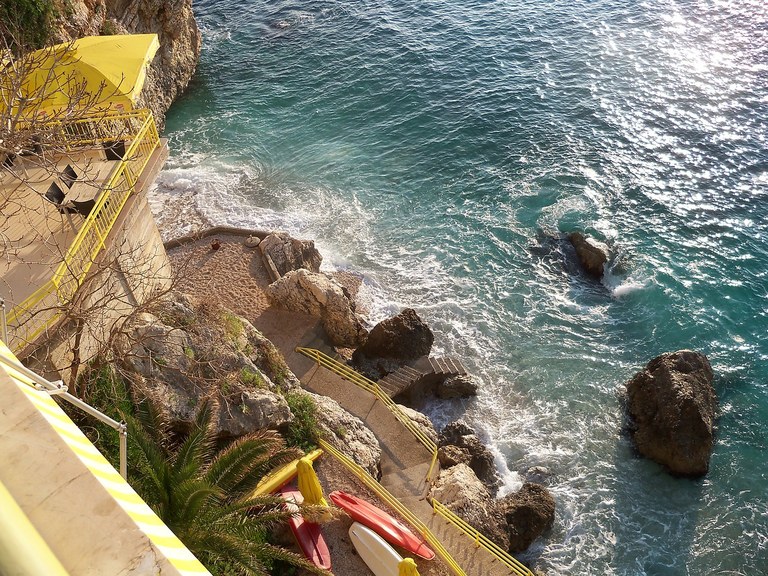
Albania takes a great step forward towards marine spatial planning
Under the Bilateral Agreement between UNEP/MAP and IMELS
As part of the Marine Spatial Planning (MSP) activities under the Cooperation Agreement, SPA/RAC in coordination with PAP/RAC supported the implementation of MSP and Integrated Coastal Zone Management (ICZM) in Albania through a pilot project.
The ...
As part of the Marine Spatial Planning (MSP) activities under the Cooperation Agreement, SPA/RAC in coordination with PAP/RAC supported the implementation of MSP and Integrated Coastal Zone Management (ICZM) in Albania through a pilot project.
The MSP pilot project has been of particular importance for the country, since it consisted of one of its first efforts towards MSP implementation
The most remarkable result of the project was the development of the Preliminary MSP study of Vlora area (Albania) and the Preliminary guidelines for MSP elaboration and implementation in Albania. A close collaboration between SPA/RAC and NAPA allowed the successful involvement of several stakeholders in this work.
The MSP study of Vlora area includes the elaboration of different GIS information layers related to human activities, sensitive areas, protected areas, fisheries and aquaculture areas, diving areas, ship traffic, etc. These layers were integrated into a single map to facilitate the analysis of uses and potential conflicts, and to make preliminary proposals for MSP. The MSP study, in particular the map and the proposals, was a key tool that enabled stakeholders to showcase all marine activities in one single map and to start discussing possible MSP scenarios and move forward the process, in accordance with the guidelines for MSP implementation.
Phases of the MSP cycle
In addition, the project also enabled several stakeholders to benefit from an MSP training which highlighted linkages between MSP, IMAP (Integrated Monitoring and Assessment Programme), MPA (Marine protected Areas) management and ecosystem conservation. A proposal including several spatial measures proposal was issued as an outcome from the training, among which the establishment of a Particularly Sensitive Sea Area (PSSA) to protect Karaburun Sazan SPAMI from possible commercial ship accidents.
MSP training workshop
Moreover, a study to select areas for anchoring buoys was elaborated within the project in coordination with NAPA. The study aimed at selecting areas along the Albanian coast were anchoring buoys could allow to mitigate the impact on marine habitat and to better manage leisure boats activity. Thanks to that study, the Ministry of Tourism and Environment provided NAPA with a dedicated budget to install buoys in some selected sites.
The MSP Pilot project has given a boost to the MSP implementation in Albania, providing relevant support to national efforts for the sustainable management of marine ecosystems. The MSP process in Albania is continuing through other activities and initiatives, supported by UNEP/MAP and its relevant Components, including through the ongoing GEF Adriatic project.
Links to the study and guidelines:
- Assessment of the Ecological Status and MSP preliminary initial assessment in Vlora Marine Area (Albania) in the framework of the MSP Pilot Project (Albanian- English)
- Guidelines for Marine Spatial Planning process in Albania (Albanian- English)
- Anchoring buoys for small pleasure boats in Albania (Albanian- English)
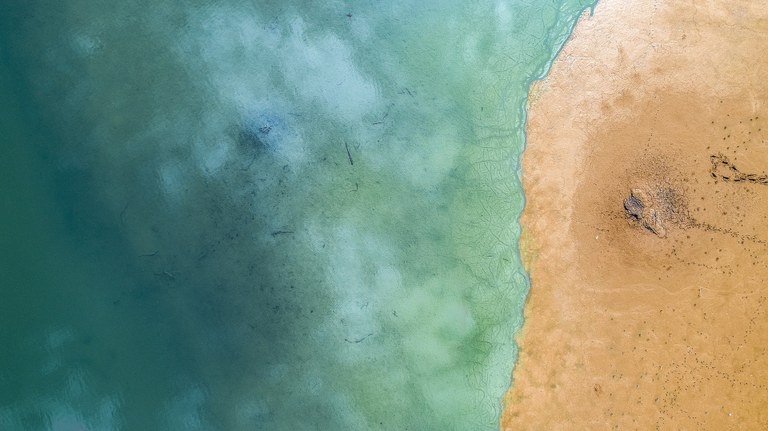
Developing PSSA in the Mediterranean
Under the Bilateral Agreement between UNEP/MAP and IMELS
A Particularly Sensitive Sea Area (PSSA) is an area that needs special protection because of its significance for recognized ecological or socio-economic or scientific reasons and which may be vulnerable to damage by international maritime ...
A Particularly Sensitive Sea Area (PSSA) is an area that needs special protection because of its significance for recognized ecological or socio-economic or scientific reasons and which may be vulnerable to damage by international maritime activities. These areas are designated by the IMO(International maritime Organization) upon request from its Member States.
In the framework of the Cooperation Agreement between IMELS and UNEP/MAP, REMPEC and SPA/RAC collaborated to provide guidance to Contracting Parties to the Barcelona Convention on PSSAs identification. PSSAs can indeed serve as an important tool for the conservation of the marine environment in the Mediterranean, in addition to nationally designated marine protected areas and other area-based management tools.
To do so, a workshop focusing on the Adriatic area and a Mediterranean seminar on PSSAs were organized on December 2019 in Tirana, Albania, with the aim to build a solid knowledge base among the Contracting Parties, and to facilitate them to consider the possibility of pursuing on demands to IMO for the designation of PSSAs in the Mediterranean, with support from the Barcelona Convention Secretariat and relevant MAP Regional Activity Centres.
Work carried out in this area is expected to have a clear impact for the future of PSSAs in the region and more generally for the implementation of joint management measures at regional and sub-regional levels towards achievement of Good Environmental Status of the Mediterranean sea and coasts (GES). Indeed, several countries expressed their willingness to continue working on the definition of PSSAs in areas of their interest. The training and information provided in these meetings can support them to pursue the preparation of PSSAs proposals to IMO.
Link to seminar and workshop packages of outputs:
https://rac-spa.org/sites/default/files/meetings/pssa_seminar.zip
https://rac-spa.org/sites/default/files/meetings/pssa_workshop.zip
Draft Guidance Document with regard to identifying and designating Particularly Sensitive Sea Areas in relation to Specially Protected Areas of Mediterranean Importance
Under the guidance of the Coordinating Unit, REMPEC in coordination with SPA/RAC, contributed to further exploring the possibilities of identifying and designating Particularly Sensitive Sea Areas (PSSAs) in the Mediterranean sea as a way to enhance the protection of Specially Protected Areas of Mediterranean Importance (SPAMIs) that are marine areas with significant ecological, socio-economic, or scientific attributes.
More specifically, the “Draft Guidance Document with regard to identifying and designating Particularly Sensitive Sea Areas in relation to Specially Protected Areas of Mediterranean Importance” was prepared and submitted to the Adriatic Regional Workshop on PSSAs and Mediterranean Seminar on PSSAs (Tirana, Albania, 10-13 December 2019), co-organised by SPA/RAC, REMPEC, PAP/RAC and the UNEP/MAP Coordinating Unit. During these meetings, the participants were provided with solid information on the identification and designation of PSSAs, including legal and procedural requirements to be followed as well as measures to be taken, and the practical experience relating to their implementation.
REMPEC will soon be carrying out the necessary consultations with all Contracting Parties to the Barcelona Convention on the draft document, through a REMPEC Circular Letter, with a view to incorporating their feedback and comments prior to its submission to the Fourteenth Meeting of the Focal Points of REMPEC (25-27 May 2021) for review and recommendations.
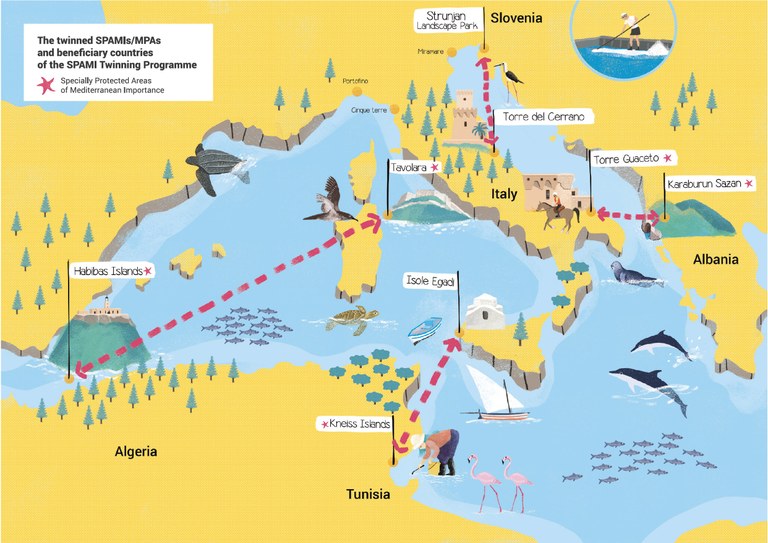
Building links across physical barriers between SPAMIs
Under the Bilateral Agreement between UNEP/MAP and IMELS
Launched in 2018, the SPAMI Twinning Programme aimed at developing and strengthening an effective management of Specially Protected Area of Mediterranean Importance (SPAMI) by setting up twinning programmes among SPAMI and Marine Protected Areas ...
Launched in 2018, the SPAMI Twinning Programme aimed at developing and strengthening an effective management of Specially Protected Area of Mediterranean Importance (SPAMI) by setting up twinning programmes among SPAMI and Marine Protected Areas (MPAs) of Italy and other Mediterranean countries.
8 SPAMIs/MPAs from 5 Mediterranean countries (Albania, Algeria, Italy, Slovenia and Tunisia) have benefited from this programme. During its 12 months implementation:
- A training on planning according to the ISEA method was provided for 16 MPA and SPAMI managers in Tunisia on 11-12 Marsh 2019. This activity helped to design four management plans according to the ISEA method, that were adopted by the concerned authorities in Albania, Algeria, Slovenia and Tunisia. ISEA Central Planning is the tool set up by the Italian Ministry of the Environment for the coordination of activities carried out by the national MPA network. It is based on a graphic conceptual model that allows a visual understanding of the governance of the protected area, with easy identification of the ecological values of the site, threats, and the strategies and actions developed by the management body to achieve its objectives.
- 4 exchange visits by Italian managers to twinned MPAs were organized to identify and discuss common challenges and possible solutions.
- 4 exchange visits to Italian MPAs for managers of twinned MPAs were organized to demonstrate good management and monitoring practices. These exchanges have also led to a better understanding of the functioning of the ISEA system.
- Several initiatives were launched to encourage the participatory process in the management of SPAMIs. In Tunisia, new boundaries and zoning of the Kneiss SPAMI were defined. In Algeria, a fishing charter around the SPAMI of the Habibas Islands has been developed. In Slovenia, fishermen were involved in the monitoring of the Strunjan SPAMI and in Albania, the activity focused on improving the sustainability of sea excursions operated by local boatmen at the Karaburun Sazan SPAMI.
- A call for small projects was launched by SPA/RAC, with the main objective of involving local civil society in the management of SPAMIs. These small projects focused on the development of sustainable socio-economic activities and monitoring within the SPAMIs.
In order to further promote regional cooperation between SPAMIs and knowledge-sharing during the SPAMI twinning programme and beyond, a Collaborative Platform has been set up. This online tool aims to facilitate the exchange of information and data between SPAMI managers and to centralize useful material for the management of SPAMIs and MPAs in general.
Thus, the platform provides access to information relating to institutional aspects, including the procedure for the creation and registration of SPAMIs and SPAMI application forms. The platform also provides geo-referenced data on SPAMIs as well as information on management(management plan / ISEA scheme) and ecological features. The resources centre aims to centralize videos and any useful documentation related to SPAMIs. The SPAMI managers have also the possibility to register on the platform and to exchange through the forum.
"The SPAMI Collaborative Platform is a great opportunity to seek synergies among all the SPAMIs across the region. The platform will be a fruitful contribution to improve coordination, through exchange of information and knowledge, at different levels. We share the Mediterranean, therefore we share challenges that will benefit from coordinated approaches", said Jorge ALONSO RODRÍGUEZ, SPA/BD Focal Point in Spain.
Link to the Platform: http://spami.medchm.net/en
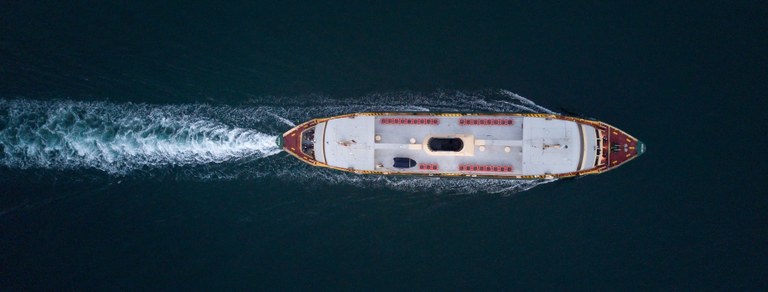
An outlook of progress made in the field of prevention of, preparedness for and response
In collaboration with Plan Bleu, the Regional Activity Center for Specially Protected Areas (SPA/RAC) and the Coordination Unit of UNEP/MAP, REMPEC, prepared and launched a study on trends and outlook of marine pollution from ships and activities and of maritime traffic and offshore activities in the Mediterranean.
In collaboration with Plan Bleu, the Regional Activity Center for Specially Protected Areas (SPA/RAC) and the Coordination Unit of UNEP/MAP, REMPEC, prepared and launched a study on trends and outlook of marine pollution from ships and activities ...
In collaboration with Plan Bleu, the Regional Activity Center for Specially Protected Areas (SPA/RAC) and the Coordination Unit of UNEP/MAP, REMPEC, prepared and launched a study on trends and outlook of marine pollution from ships and activities and of maritime traffic and offshore activities in the Mediterranean. This study compiling important information about the socio-economic as well as ecological aspects and impacts of the maritime activities is expected to be finalised by September 2020.
REMPEC recently launched a consultation process for the preparation of the Post-2021 Regional Strategy for Prevention of and Response to Marine Pollution from Ships (2016-2021), involving National competent authorities, relevant regional and international institutions and stakeholders addressing challenges and offering expertise, resources, and funding to progress in the improvement of the prevention of and response to marine pollution from ship. . The objectives of the consultation are:
- to define, through a collaborative approach, the vision, the strategic directions, and objectives of a post-2021 Mediterranean Strategy,
- to outline the main institutions and stakeholders’ roles and responsibilities within their respective mandate, and to identify required synergies; and
- to propose a modus operandi to ensure concerted planning, coordinated implementation, and monitoring procedures.
REMPEC also progressed in the implementation of the road map for a proposal for the possible designation of the Med SOx ECA, notably on the preparatory phase of the requested knowledge gathering based on existing knowledge and studies, and of the further studies to be carried out with a view to developing a mutually agreed joint and coordinated proposal for the possible Med SOX ECA. The following points summarizes progress made on this activity:
- extension of the mandate of the SOx ECA(s) Technical Committee of Experts composed of experts from all twenty-two (22) Contracting Parties to the Barcelona Convention, securing the “universal” membership of the committee to oversee the preparation of the Terms of Reference and the outcome of the knowledge gathering and further studies identified in the road map,
- integration of comments received from 15 Contracting Parties to the Barcelona Convention, in the final version of the ToRs,
- launch of a Call for Expressions of Interest to provide consultancy services issued by REMPEC, Plan Bleu and MED POL, for which 15 expression of interests were received,
- launch of a request for proposal for consultancy services to support the preparation of the knowledge gathering and further studies identified in the road map,
- preparation of the call for tender for the regional socio-economic studies, and
- submission of Information documents to the 75th Marine Environment Protection Committee (MEPC 75)
In order to maintain and strengthen its emergency response capability, REMPEC renewed the Memorandum of understanding (MoU) with Sea alarm and the Federazione Nazionale dell’Industria Chimica (Federchimica), which are two components of the Mediterranean Assistance Unit (MAU) that can be mobilized to provide onsite and remote assistance to the Contracting Parties impacted by a pollution.

A European Green Deal
The European Green Deal is the roadmap for making the EU's economy sustainable. This will happen by turning climate and environmental challenges into opportunities across all policy areas and making the transition just and inclusive for all.
The ...
The European Green Deal is the roadmap for making the EU's economy sustainable. This will happen by turning climate and environmental challenges into opportunities across all policy areas and making the transition just and inclusive for all.
The European Green Deal provides a roadmap with actions to
- boost the efficient use of resources by moving to a clean, circular economy
- restore biodiversity and cut pollution.
It outlines investments needed and financing tools available, and explains how to ensure a just and inclusive transition.
The EU will be climate neutral in 2050. To do this, we proposed a European Climate Law turning the political commitment into a legal obligation and a trigger for investment.
Reaching this target will require action by all sectors of our economy, including
- investing in environmentally-friendly technologies
- supporting industry to innovate
- rolling out cleaner, cheaper and healthier forms of private and public transport
- decarbonising the energy sector
- ensuring buildings are more energy efficient
- working with international partners to improve global environmental standards.
The EU will also provide financial support and technical assistance to help people, businesses and regions that are most affected by the move towards the green economy. This is called the Just Transition Mechanism and will help mobilise at least €100 billion over the period 2021-2027 in the most affected regions.
Policy areas: Biodiversity, From Farm to Fork, Sustainable agriculture, Clean energy, Sustainable industry, Building and renovating, Sustainable mobility, Eliminating pollution, Climate action

Earth Hour in the Mediterranean
By taking part in Earth Hour, the Mediterranean Action Plan of the UN Environment Programme (UNEP/MAP) contributed to raising public awareness about the need to alleviate pressure on Mediterranean marine and coastal ecosystems, including from the ...
By taking part in Earth Hour, the Mediterranean Action Plan of the UN Environment Programme (UNEP/MAP) contributed to raising public awareness about the need to alleviate pressure on Mediterranean marine and coastal ecosystems, including from the impacts of climate change.
Started by WWF and partners as a symbolic lights-out event in Sydney in 2007, Earth Hour is now one of the world's largest grassroots movements for the environment. Held every year on the last Saturday of March, Earth Hour engages millions of people in more than 180 countries, switching off their lights to show support for our planet. The annual event goes beyond the symbolic action of switching lights off and has become a catalyst for positive environmental impact. Read more
Celebrating women’s contributions to a healthy Mediterranean
Under the auspices of UNEP/MAP, the Contracting Parties to the Barcelona Convention adopted in 2016 a Sustainable Consumption and Production Action Plan for the Mediterranean region.The UNEP/MAP’s Regional Activity Centre for Sustainable Consumption ...
Under the auspices of UNEP/MAP, the Contracting Parties to the Barcelona Convention adopted in 2016 a Sustainable Consumption and Production Action Plan for the Mediterranean region.The UNEP/MAP’s Regional Activity Centre for Sustainable Consumption and Production (SCP/RAC)provides support to Contracting Parties in its implementation, including through the Switchmed programme.
Switchmed is an initiative aiming to scale up social and eco-innovations in the Mediterranean through training to green business entrepreneurs and advocacy for a policy and regulatory framework conducive to innovation. The programme is implemented through a collaboration among UNEP/MAP – through SCP/RAC –, UNEP Economy Division and the EU (DG NEAR). Read more.
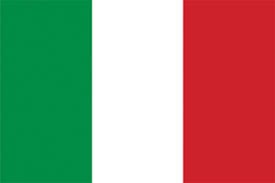
Italy’s commitment to support marine litter management in the Adriatic
Under the Bilateral Agreement between UNEP/MAP and IMELS
The continuous growth in the amount of solid waste thrown away, and the very slow rate of degradation of most items, are together leading to a gradual increase in marine litter found at sea, on the sea floor and coastal shores.
Marine litter, ...
The continuous growth in the amount of solid waste thrown away, and the very slow rate of degradation of most items, are together leading to a gradual increase in marine litter found at sea, on the sea floor and coastal shores.
Marine litter, including plastic and microplastics, represents one of the main pressures to marine and coastal environment. In the Mediterranean, it is estimated that there are 0.5 billion litter items lying on the seafloor, the majority of which are plastics, with devastating effects on marine biodiversity, but also on our health, and on vital human activities for the economy of this region, such as fisheries and tourism.
In the Adriatic, it is estimated that each habitant produces on average 1.5 kg of waste per day, yet the percentage of waste inadequately managed can go up to 45% depending on the country, according to the Marine Litter Assessment in the Mediterranean.
Italy’s commitment to support marine litter management in the Adriatic
Marine litter management was one of the key components of the Cooperation Agreement. Special attention was given to the Adriatic area, with the goal to provide concrete support through the design and implementation of pilot projects.
A series of Adopt-a-beach pilots were successfully implemented in Albania, Bosnia and Herzegovina and Montenegro to support the implementation of the Regional Plan on Marine Litter Management in the Mediterranean. The pilots resulted in the generation of beach marine litter data and contributed in updating the relevant baseline values at regional and sub-regional levels. Moreover, the three countries were supported in developing data inventories to support their population in the IMAP Pilot Info System.
A significant milestone was the organization of the Regional Meeting on Pilot Projects and Assessment Tools for Marine Litter (19-20 November 2019, Athens, Greece) with the participation of sixteen (16) Contracting Parties. During the Meeting:
- The final outcomes of marine litter pilot projects implemented under the Cooperation Agreement with IMELS were presented and reviewed;
- The proposed updated baseline and threshold values for marine litter were presented and reviewed;
- The methodology for identification of marine litter hotspots with a particular focus on areas affected by fisheries-related items were presented;
- A smartphone application tool for identification and collection of marine litter data developed by INFO/RAC was presented; and
- The outcome of a comparative analysis between the UN Environment/MAP IMAP and the European Commission GES Decision 2017/848/EU for marine litter indicators were presented.
MAP components working together to provide a complementary expertise
Marine litter is a multidimensional problem requiring responses across the board. This is why, MAP Coordination Unit, REMPEC (the Regional Marine Pollution Emergency Response Centre for the Mediterranean Sea) and SCP/RAC (the Regional Activity Centre for Sustainable Consumption and Production) are working together to provide a complementary expertise.
In this respect, REMPEC carried out pilots targeting ship-generated wastes in selected major ports and marinas of the Adriatic area. In addition, dedicated sub-regional sessions were organised in the margins of regional meetings to support review by the Adriatic countries of the “Operational Guidelines on the provision of Reception Facilities in Ports and the Delivery of Ship-Generated Wastes in the Mediterranean” which were also translated into national languages of the Adriatic countries. The efforts by REMPEC culminated in the organisation of a Sub-regional Meeting on the Better Management of Marine Litter from Sea-based Sources in Ports and Marinas in the Adriatic, presented in more detail in the respective chapter below.
SCP/RAC supported a portfolio of activities aiming to prevent plastic marine litter and microplastics generation from the Food and Beverage sector in the Adriatic countries, through sustainable production and consumption actions, including development of guidelines and pilots which are presented in the respective chapters below.
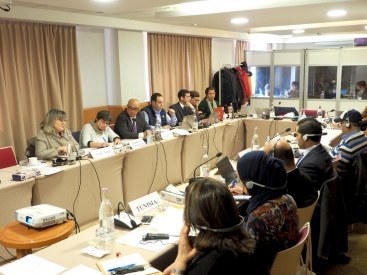
IMAP-MPA project: a new drive to strengthen integrated monitoring and biodiversity conservation in the Mediterranean
A new project implemented by the Mediterranean Action Plan of the UN Environment Programme (UNEP/MAP)
A new project implemented by the Mediterranean Action Plan of the UN Environment Programme (UNEP/MAP) and funded by the European Union went underway in March 2020 with the two-pronged aim of strengthening national capabilities in integrated ...
A new project implemented by the Mediterranean Action Plan of the UN Environment Programme (UNEP/MAP) and funded by the European Union went underway in March 2020 with the two-pronged aim of strengthening national capabilities in integrated monitoring of the Mediterranean Sea and coast and enhancing the management of marine protected areas in the Mediterranean region.
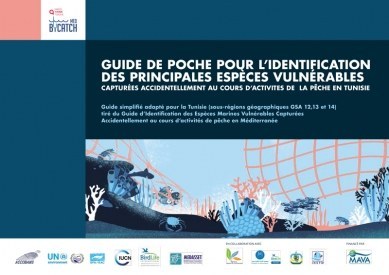
New bycatch pocket guides released
In the framework of the MedBycatch project, a pocket guide to help onboard bycatch observations in Morocco, Tunisia and Turkey has been published as a complementary tool to the more comprehensive ID guide of Mediterranean vulnerable species.
The ...
In the framework of the MedBycatch project, a pocket guide to help onboard bycatch observations in Morocco, Tunisia and Turkey has been published as a complementary tool to the more comprehensive ID guide of Mediterranean vulnerable species.
The Identification Guide Of Vulnerable Species Incidentally Caught In Mediterranean Fisheries is a practical document that has been published within the MedBycatch project to help fishermen, bycatch observers and scientists, to identify and monitor vulnerable species caught incidentally in the Mediterranean.
The identification guide is the result of the collaboration between the MedBycatch project partners, namely ACCOBAMS, FAO/GFCM, SPA/RAC, IUCN-Med (coordinator of the final compilation and editing of the document), BirdLife Europe and Central Asia, MEDASSET, with the financial support of the MAVA Foundation, and the contribution of different Mediterranean experts and national partners of the project in Morocco, Tunisia and Turkey.
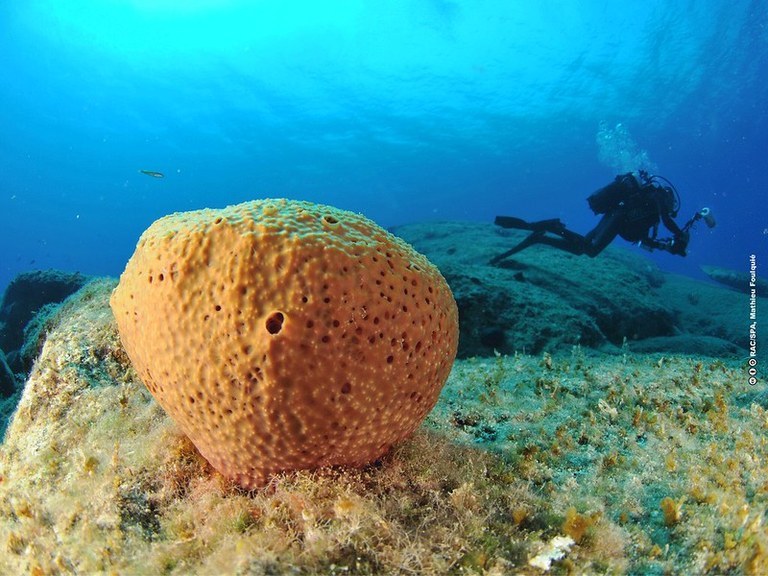
Towards a new strategy for biodiversity conservation in the Mediterranean
Launch of the planning of the Strategic Action Programme for the Conservation of the Biological Diversity in the Mediterranean Region in the Post-2020 era, with a first online Advisory Committee meeting organized on April 2nd, 2020
Launch of the planning of the Strategic Action Programme for the Conservation of the Biological Diversity in the Mediterranean Region in the Post-2020 era, with a first online Advisory Committee meeting organized on April 2nd, 2020
Background and ...
Launch of the planning of the Strategic Action Programme for the Conservation of the Biological Diversity in the Mediterranean Region in the Post-2020 era, with a first online Advisory Committee meeting organized on April 2nd, 2020
Background and strategy
Barcelona Convention COP21 requested the Secretariat to prepare in 2020-2021 the Post-2020 Strategic Action Programme for the Conservation of Biological Diversity in the Mediterranean Region (Post-2020 SAPBIO), aligned with the Sustainable Development Goals and harmonised with the CBD Post-2020 Global Biodiversity Framework through the optic of the Mediterranean context.

UN Decade on Ecosystem Restoration
The United Nations General Assembly has proclaimed 2021–2030 as the Decade on Ecosystem Restoration, following a proposal for action by over 70 countries from all latitudes.
The United Nations General Assembly has proclaimed 2021–2030 as the Decade on Ecosystem Restoration, following a proposal for action by over 70 countries from all latitudes. The UN Decade positions the restoration of ecosystems as a major ...
The United Nations General Assembly has proclaimed 2021–2030 as the Decade on Ecosystem Restoration, following a proposal for action by over 70 countries from all latitudes. The UN Decade positions the restoration of ecosystems as a major nature-based solution towards meeting a wide range of global development goals and national priorities.
The UN Decade calls for strong commitments and efforts by countries, the international community, civil society, businesses, and others to achieve transformational ecosystem restoration. All ecosystems are addressed, including forests, grasslands, croplands, wetlands, savannahs, inland water, coastal and marine ecosystems, and even urban environments. On land, this involves the restoration of at least 350 million hectares of degraded landscapes by 2030, realizing up to US$9 trillion in net benefits and alleviating poverty in many rural communities. A target for coasts and oceans has yet to be set.
The Decade’s Strategy aims to foster a restoration culture in which restoration initiatives start and scale up across the planet, by establishing a global movement, improving the political will of the Member States and other actors, and by enhancing the capacity for designing, implementing and sustaining ecosystem restoration initiatives.
Read more: Restoring ecosystems in the Mediterranean
For more information, please visit https://www.decadeonrestoration.org/get-involved/strategy
